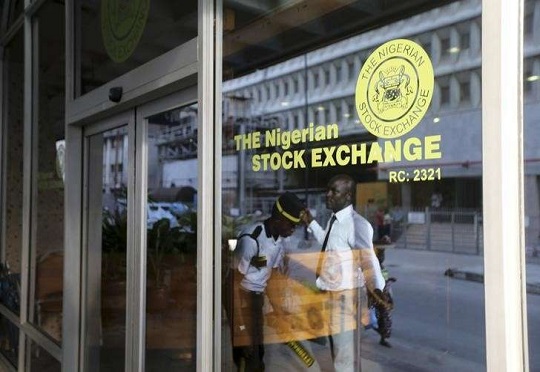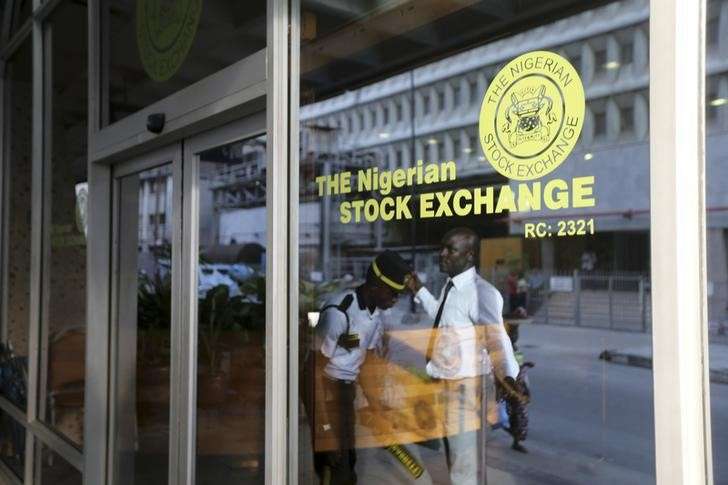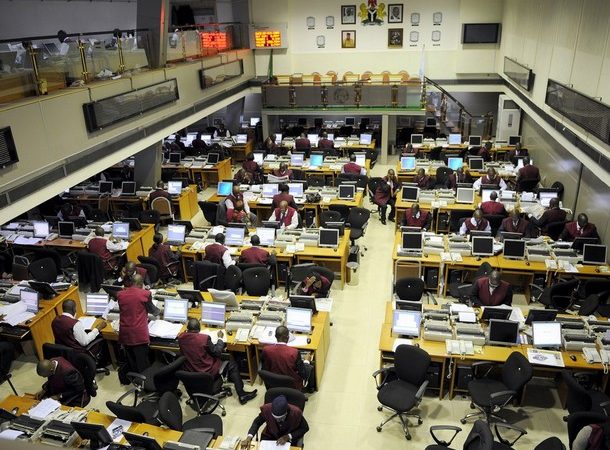The stock market closed trading on Tuesday on a negative note, due as the losses in stocks of Tier-one banks.
Consequently, All-Share Index fell by 1.5 per cent or 1,564.52 to close at 103,110.15, compared with 104,674.67 posted on Monday.
Similarly, investors lost N857 billion or 1.5 per cent, making the market capitalisation, which opened at N57.282 trillion, to close at N56.425 trillion.
Accordingly, the Year-To-Date (YTD) return decreased to 37.89 per cent from 39.99 per cent recorded on Monday.
Losses in Tier- one banks namely: Zenith Bank, Guaranty Trust Holding Company (GTCO) and United Bank of Africa dragged the market down.
A total of 648.95 million shares valued at N11.09 billion were exchanged in 14,579 deals.
Analysis of the market activities indicated that trade turnover settled lower relative to the previous session, with the value of transactions down by 57.26.per cent.
Meanwhile, Japaul Gold Group led the volume chart with 59.80 million shares traded at N179.54 million.
Transcorp Hotel trailed with 52.06 million shares traded at N763.20 million.
Access Corporation also sold shares of 46.81 million worth N1.20 billion, UBA traded 44.55 million shares worth N1.23 billion and Oando Plc which transacted 33.95 million shares worth N496.65 million.
On the losers’ table, Linkage Assurance, Caverton, Sterling Nigeria, Axa Mansard and National Salt Company (NASCON) lost in percentage terms of 10 each to close at N1.17, N1.80, N6.30, N5.85 and N68.40.
On the other hand, UPDC Plc led by 8.11 per cent to close at N2, while Geregu Power Plc gained 4.61 per cent to close at N517.80 per share.
Wema Bank garnered 1.21 per cent to close at N10.90, Ellah Lakes Plc rose by 0.99 per ent to close at N3.05 and UPDC Real Estate Investment Trust went up by 0.81 per cent to close at N6.25 per share.
Reacting, the Doyen of Nigerian Stockbrokers, Mr Sam Ndata, assured investors that there was no cause for alarm, due to the drop in the market performance.
Ndata told NAN in an interview in Lagos that a decline in market performance is a nature of the market.
“Whatsoever goes up, must surely come down and viz-a-viz,” Ndata said.
He said: “Today’s fall in the market performance does not mean that investors are at lost, hence, there is no cause for alarm.
“The market has been on a rising trend for weeks now, so the nature of investment must take its course.
“It is a regular practice for investors to withdraw part of the investment for their personal use and that is why we witnessed a drop in the market record.
“We believe that, by tomorrow or following days the market will rise again.





